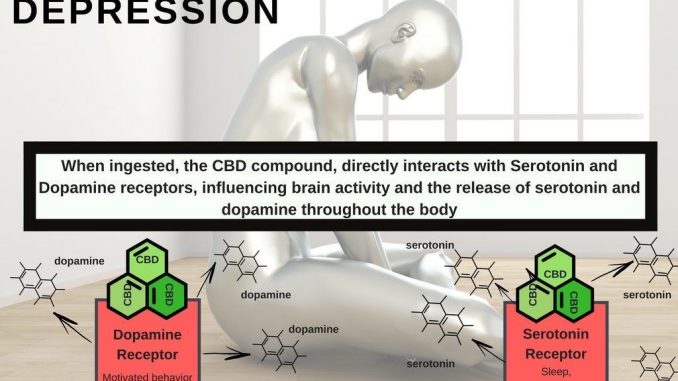
Depression is a mental health disorder that affects millions of people worldwide. Traditional treatments for depression include therapy, medication, and lifestyle changes. However, with the rise in popularity of CBD (cannabidiol), many people are turning to this natural remedy as a potential solution for improving their mood. In this article, we will explore the current research surrounding CBD and its potential benefits in alleviating symptoms of depression.
The Science of CBD
CBD is one of the many compounds found in the cannabis plant. Unlike its well-known counterpart, THC (tetrahydrocannabinol), CBD does not induce psychoactive effects. Instead, it interacts with the body’s endocannabinoid system (ECS), which plays a crucial role in regulating various functions such as mood, sleep, appetite, and pain.
The Link between CBD and Serotonin
One of the theories behind CBD’s potential effectiveness in treating depression lies in its interaction with the neurotransmitter serotonin. Serotonin is often referred to as the “feel-good” chemical due to its role in regulating mood and emotions. Research suggests that CBD may help increase serotonin levels in the brain by inhibiting the reabsorption of this neurotransmitter.
Reducing Anxiety and Stress
Anxiety and stress are often closely linked to depression, and many individuals with depression experience these symptoms. CBD has been shown to possess anxiolytic properties, meaning it may help reduce anxiety and stress levels. By promoting a sense of calm and relaxation, CBD may indirectly benefit individuals struggling with depression.
Anti-Inflammatory Effects
Inflammation has been linked to various mental health disorders, including depression. CBD has demonstrated anti-inflammatory properties, which could potentially help alleviate symptoms of depression. By reducing inflammation in the brain, CBD may positively impact the overall mood and well-being of individuals suffering from depression or depressive symptoms.
Improved Sleep Quality
Sleep disturbances are a common symptom of depression, and poor sleep can exacerbate feelings of sadness and hopelessness. CBD has shown promise in improving sleep quality by addressing issues such as insomnia and promoting a more restful sleep. By enhancing the quality and duration of sleep, CBD may contribute to an overall improvement in mood and mental health.
Additional Considerations and Precautions
While the potential benefits of CBD in treating depression are encouraging, it is important to approach its use with caution. CBD products are not currently regulated by the FDA, so quality control can be inconsistent. It is essential to source CBD from reputable manufacturers and consult with a healthcare professional before incorporating it into your depression treatment plan.
Conclusion
CBD shows promise as a potential natural remedy for improving mood and alleviating symptoms of depression. Its ability to interact with the body’s endocannabinoid system, influence serotonin levels, reduce anxiety and stress, provide anti-inflammatory effects, and improve sleep quality all make it an intriguing option for individuals seeking alternative treatments for depression. However, it is crucial to approach CBD use responsibly and seek professional advice before integrating it into your mental health regimen.
